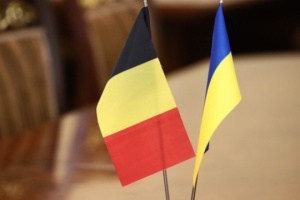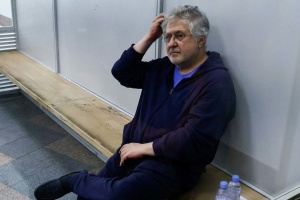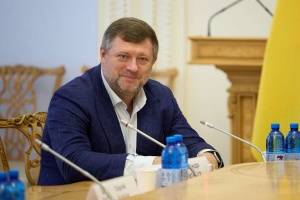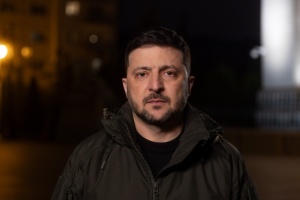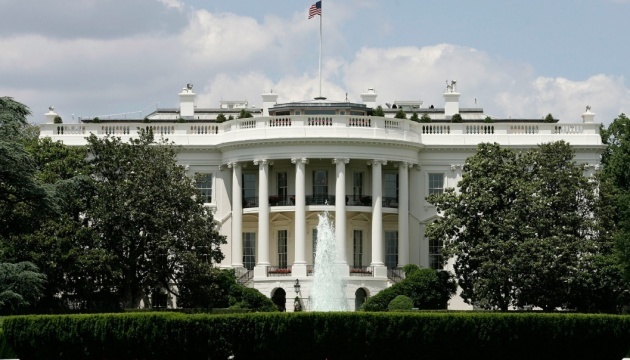
Talks on Donbas: Russia not against U.S. participation, but it sets unacceptable conditions
Today, we see another update of talks on the inclusion of the United States in the negotiation process on Donbas. According to Oleksiy Arestovych, the spokesperson for the Ukrainian delegation to the Trilateral Contact Group (TCG), Head of the Ukrainian President's Office Andriy Yermak and U.S. Under Secretary of State for Political Affairs Victoria Nuland are currently holding intensive consultations in this regard. "Their concrete result will most likely be clear after President Zelensky's visit to the United States and his meeting with President Biden, which is scheduled for later this month. In addition, as far as I know from open sources, Nuland communicates very intensively with Kozak. Quite intensively," Arestovych said.
Dmitry Kozak, deputy head of the Russian presidential administration, said on the margins of the Geneva summit that Moscow did not deny the possibility of Washington's involvement in the Donbas talks. At the same time, he hinted that this would happen only if the United States could force Ukraine to fulfill the Minsk agreements on Russian terms. "If our American colleagues manage to influence, first of all, the Ukrainian position, there is a chance that something will move from the deadlock," Kozak said. Three weeks after the summit in Geneva, similar statements were made by a number of other Russian officials. In particular, First Deputy Chairman of the Federation Council Committee on International Affairs Vladimir Dzhabarov, while commenting on U.S. participation in the talks, said that it was possible, but Moscow still needed to assess how much it will help advance the implementation of the Minsk agreements. Finally, Russian Deputy Foreign Minister Sergei Ryabkov said that everything would depend on whether the Americans will succeed in shaping a "more dimensional, substantive and calm" approach to everything that is happening in Donbas and around Ukraine as a whole.
Russian political scientist Andrei Piontkovsky wrote in his blog that there was quite a difficult situation at the White House after the Geneva summit. He said there was allegedly a confrontation between two groups of senior officials, namely "pro-Ukrainian" Blinken, Nuland and Austin, as well as "Kremlin sympathizers" Kerry, Burns and Sullivan. The latter allegedly insist, according to the political scientist, that Washington force Kyiv to fulfill the Minsk agreements according to Moscow's scenario.
Given the above, how can we assess the current situation? First of all, what do such statements by Russians mean? And, finally, is the U.S. involvement in talks on Donbas real or not?
In the United States, unlike Russia, not everything is decided by the president
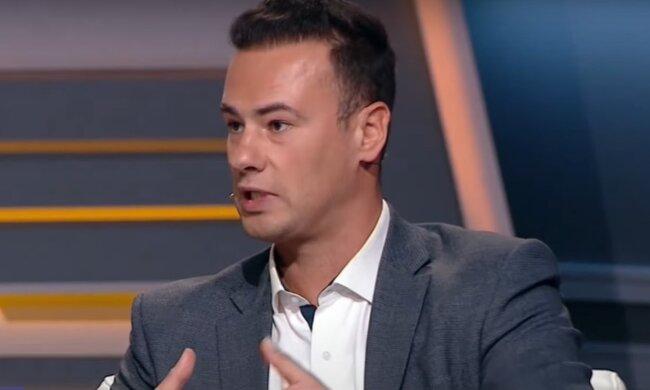
Maksym Yali
International political scientist Maksym Yali said in a comment to Ukrinform that it was worth waiting for the results of Zelensky's meeting with Merkel at which, in his opinion, the United States, Germany and France will outline their collective position on the Donbas settlement.
"It is no coincidence that there is no final date for Zelensky's visit to Washington. It will largely depend on whether the United States joins the Normandy format," Yali said.
Of course, Russia will agree to this only if Ukraine is forced to follow their scenario. It cannot be ruled out that Biden and Putin reached some agreement in Geneva.
"However, in the United States, unlike Russia, not everything is decided by the president. And even if Biden is ready to make concessions to Putin on Ukraine, he should also enlist the support of Congress and the Democratic Party, which has proponents of resetting relations with the Kremlin and staunch opponents of that. So it is worth waiting a week and the position of the United States, whose secretary of state has recently stated that the United States 'has no better friend in the world than Germany,' will soon become clearer," he said.
The activity of Kremlin speakers is aimed at setting traps for the United States in the future
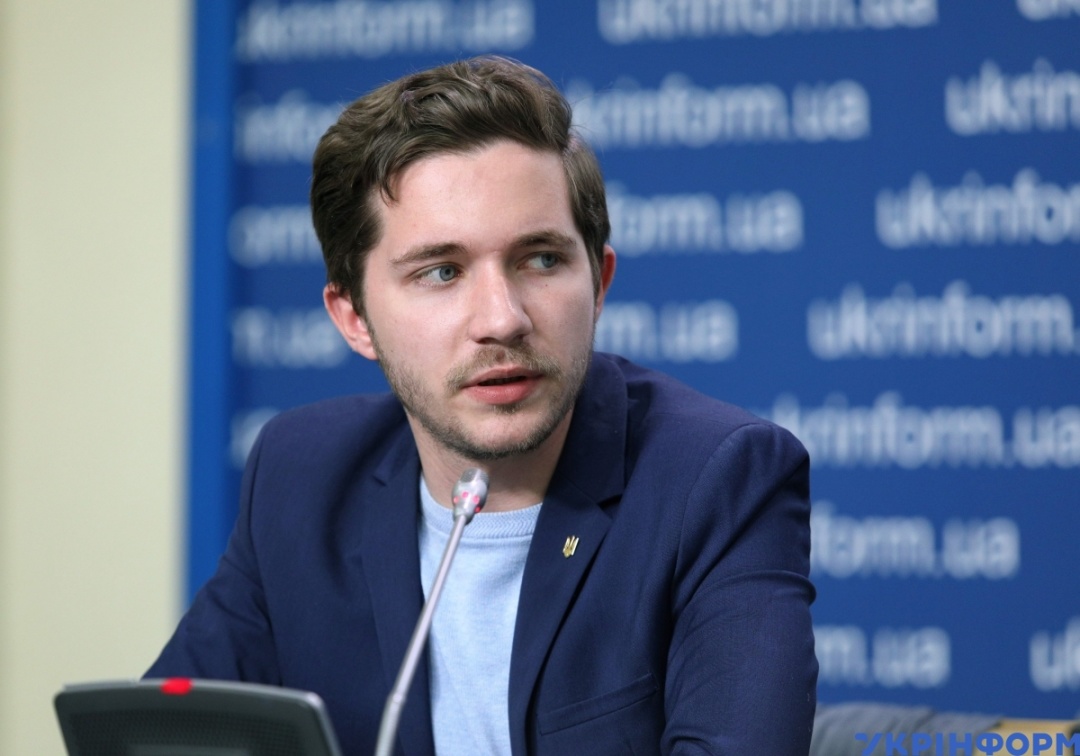
Oleh Saakian
"Indeed, there is a struggle between two camps in the United States - the pro-Ukrainian one and the pro-Russian one. And I would say that the latter is currently operating under the guise of the 'anti-Chinese' [camp] where possible concessions to Russia on the Ukrainian issue are presented as a shift of focus from tactical to strategic," said political scientist Oleh Saakian.
Accordingly, the withdrawal of U.S. troops from Afghanistan, Syria and other chronic conflicts is done to focus on a key strategic goal - confrontation with China. "Therefore, the issue of Taiwan, Hong Kong, etc. becomes more relevant. So I would not be too hopeful that the United States will join negotiation formats on Donbas in the near future. Maybe there will be something like Volker-2, but this is not about the short term," Saakian said.
Returning to the situation with China, the political scientist noted that all this allows Russia to actively promote the thesis that the United States should allegedly make limited concessions in the Russian-Ukrainian war. "In fact, I think the current activity of Kremlin speakers in this direction is aimed at setting traps for the future," he said. "That is, if the United States does decide to join the talks over time, then they should immediately find themselves in a situation when their involvement will be possible only in the event of pressure on Ukraine, so that it is forced to implement the Minsk agreements according to the Russian scenario."
But the likelihood that the United States will force Ukraine to implement these agreements as the Kremlin wants is extremely low, because there are certain safeguards. The first one is intra-American. "Concessions to Russia… I am sure that it will be very difficult for Biden to explain this to Congress, where there is bicameral and bipartisan support for Ukraine," Saakian said. The second one is intra-Ukrainian: "Firstly, Ukrainian society will not accept this. Secondly, political elites will not accept this. And, thirdly, it could lead to destabilization within the country, which Russia will definitely want to use."
It is impossible to fulfill Minsk agreements and Ukraine's partners understand this perfectly well
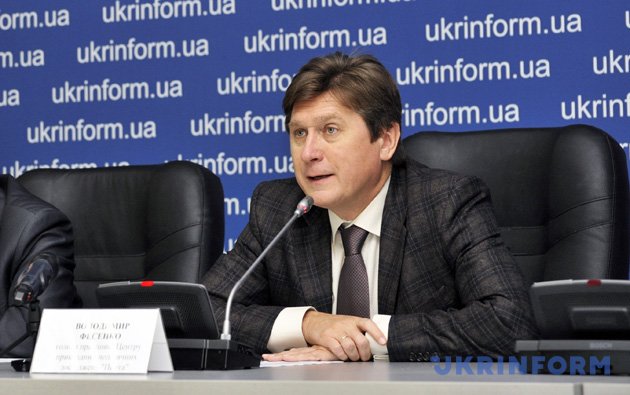
Volodymyr Fesenko
"I don't think we should talk about any negative expectations. I see no grounds for this. President Zelensky will go to Berlin and later to Washington. Will his talks with Merkel and Biden give any concrete result, any impetus to resolve the situation in Donbas? That's unlikely to happen. There will be no progress. In fact, the Russians will not do anything either, keeping the negotiation process on standby - at least until the end of the year, waiting for the results of elections in Germany," said political scientist Volodymyr Fesenko.
Time will tell what happens next. However, will Ukraine be forced to implement the Minsk agreements, as the Kremlin's henchmen are now actively emphasizing? According to the expert, it is impossible to implement them in the form in which they were signed in February 2015. "At least one clause of the Minsk-2 agreement – on securing in the Constitution of Ukraine the special status of ORDLO [certain areas of Donetsk and Luhansk regions] - requires the support of at least 300 deputies of the Verkhovna Rada of Ukraine. Bu this was not done in the previous convocation of the Ukrainian parliament, it is not down now, and it is very unlikely that it will be done in the next composition. And I think our partners understand this very well."
According to Fesenko, the Minsk agreements should be renewed (Russia does not agree to this yet, but the option remains open) or it is necessary to start with the first point of the agreements - a lasting ceasefire.
"Last year, there were already attempts [to cease fire] and it worked for several months. Not completely, of course, but progress was evident. It would be good to try to do that again… I think if a lasting truce is reached, it can also open the way to the implementation of the Minsk agreements. However, again, everything will depend only on Russia - on how it fulfills the security conditions of the Minsk agreements," Fesenko said.
Commenting on U.S. involvement in Donbas settlement talks, he said that it was most likely about the resumption of a separate channel of negotiations between the U.S. and Russia, as was the case before: first Nuland-Surkov and then Volker-Surkov.
"But it should be understood that earlier, when talks were held on this separate channel between U.S. and Russian representatives, all this was coordinated with the negotiations in the Normandy format. Simply put, before each such meeting, Germany, France and Ukraine prepared their proposals, which were passed on to Volker, who in turn discussed all this with Surkov. After that, Volker again informed Paris, Berlin and Kyiv about the results of the talks. So, again, something similar can happen now," Fesenko said.
But, in any case, the Russian Federation has yet to agree to this.
"And the Russian Federation is resorting to blackmail, setting preconditions, in particular, how and about what these negotiations should be held. […] Any progress in any negotiations is possible only when Ukraine is involved. After all, I do not have any overestimation of U.S. participation in the negotiations. Because, in any case, the further development of the process depends not so much on who participates in these negotiations, but on the readiness of the Russian Federation to real compromises. Until that happens, no progress should be expected, regardless of whether the United States is present at the talks or not," Fesenko said.
The United Kingdom should join the talks together with the United States

Viktor Kaspruk
"From the very beginning, the logic of the Minsk agreements was unclear. Moscow needed a negotiation process in order to force Ukraine to surrender, using the authority of France and Germany as a cover," said Viktor Kaspruk, a political scientist and international journalist.
The whole Minsk process took place in very unfavorable conditions for Ukraine. Germany and France were constantly blocking Ukraine's path to NATO and the European Union in agreement with Moscow.
"Therefore, in fact, peace talks on Donbas were held in a three-against-one format. They constantly imposed on Kyiv the proposals put forward by Moscow, which were unacceptable to Ukraine, and then the Kremlin accused the Ukrainian side that it was not interested in ending the Russian-Ukrainian war, which Putin's entourage stubbornly calls a 'civil war in Ukraine'," the expert said.
The new U.S. administration of President Joe Biden is facing a confrontation over the "Ukrainian issue." And it does not necessarily mean that the "pro-Ukrainian" wing, which includes Blinken, Nuland and Austin, would have a chance to change this stalemate if the majority in Congress and the Senate did not understand the importance of Ukraine for America.
"We can say that the involvement of the United States in the negotiations on Donbas is quite real. However, Washington will never join any talks if someone expects the Americans to play to the Kremlin's demands," Kaspruk said.
If the United States still agrees to join the talks on Donbas, then a more rational step would be for them to join them not alone. "As the 'Merkel-Macron political tandem' seems to insist on 'peace' on Moscow's terms, it would be appropriate for Washington to make the following proposal: together with the United States, the United Kingdom should also join this peace process."
According to the expert, such a distribution of political forces could well contribute to a just peace in Donbas, because neither Washington nor London are ready to agree that an election can be held there before the withdrawal of Russian troops.
"The chance for achieving peace in Donbas will appear only when the approaches to this issue are completely reformatted. Obviously, not only Ukraine but also the United States and Britain must fight for such a development," Kaspruk said. The international community has long been influenced by Putin's wishes. "In this matter, Washington, London and Kyiv must act as one 'political front.' Only in this case is progress possible in the Russian-occupied part of the Ukrainian Donbas," Kaspruk said.
Ukraine must formulate for the United States its principled vision for resolving the conflict
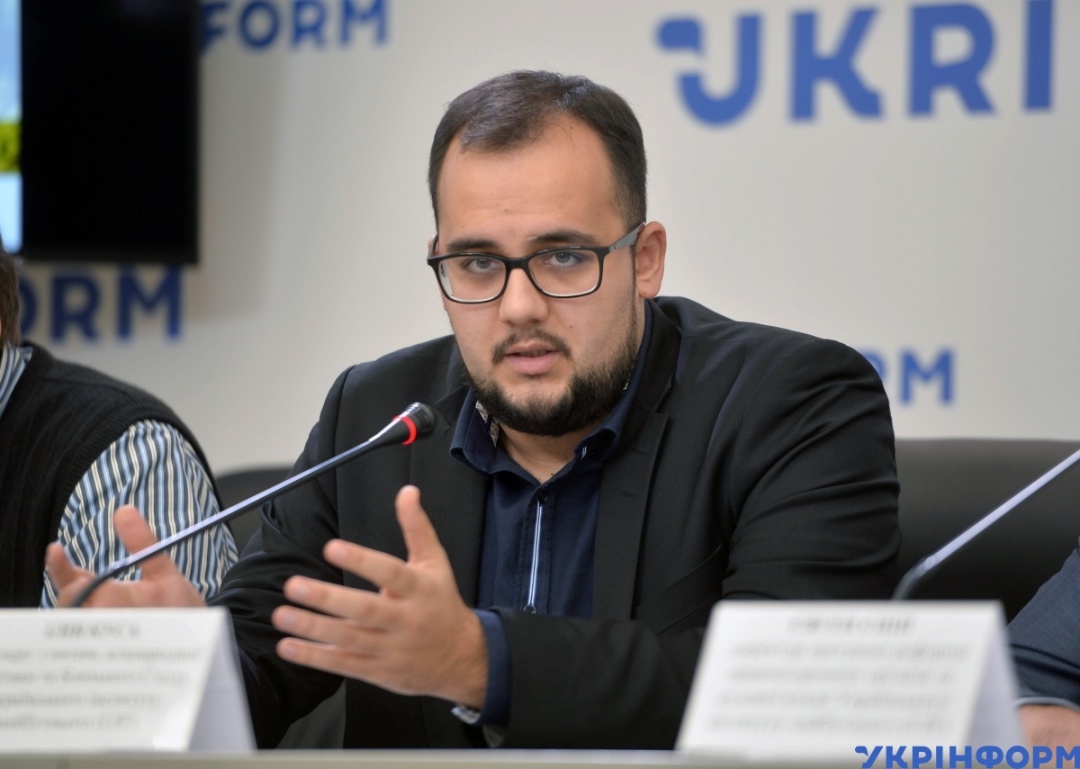
Iliya Kusa
The Biden-Putin summit in Geneva showed everything, according to Iliya Kusa, an international political scientist and expert at the Ukrainian Institute for the Future. In the United States, the confrontation with China is reaching a systemic level. They have begun to build a global anti-Chinese coalition of European allies, Turkey, allies in Asia. "In this strategy, they do not need Russia as an enemy. Of course, there will be no 'brotherly kisses,' but Biden still wants to enlist Russia's neutrality in this confrontation," he said.
And the dialogue was initiated for this reason.
"Judging by the results of the Geneva summit, we can conclude that Washington and Moscow will in the near future reach a certain understanding, the predictability of their confrontation," Kusa added.
That is, the United States and Russia will not cease to conflict, but the nature of this conflict will be more orderly.
"They will continue to discuss issues that are important to them, in particular, the red lines, as well as where they can be crossed and where they can't. And Ukraine is the subject of negotiations in this regard. That is why, in fact, we hear similar statements from Russian officials: Russia will work to persuade Washington to put pressure on Kyiv to implement the Minsk agreements in a way that benefits them. In the end, this tactic was identified immediately after the summit and I think it will be applied in the next six months," the expert said.
As for the U.S. participation in the negotiations, it is quite real, Kusa said. But the question is whether the United States will descend to the level of direct negotiations on Donbas or it will remain at the global level.
"In any case, we should be interested in something else, namely, how the Ukrainian side can formulate for the Americans its principled vision for resolving the conflict, and do so before the latter start talking about it with the Russians. Well, if we don't do that, Washington and Moscow can reach a compromise in a bilateral format, and Kyiv will simply be confronted with the fact," he said.
According to the expert, the summit in Geneva created an opportunity for Ukraine to convey its own principled position on Donbas, what Ukraine really wants, how it sees its relations with Russia in the next 10-20 years, etc.: "President Zelensky should use this in full during his visit to Washington, because this is exactly what the United States will be interested in and, in fact, they will proceed from this in its further dialogue with Russia."
Moreover, he said, before their visit to Washington, the Ukrainian delegation must have an alternative to the Minsk agreements - if the United States, along with the EU and Russia, agrees to change it. "If there is no alternative from us, they will offer it to us. However, it does not necessarily mean that this alternative will fully take into account Ukrainian interests," Kusa said.
Myroslav Liskovych, Kyiv

